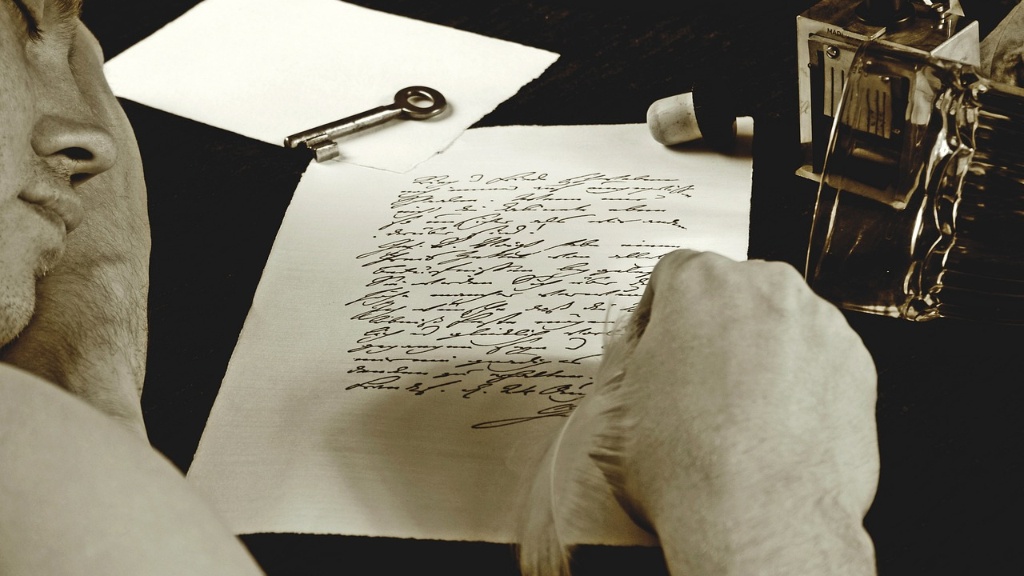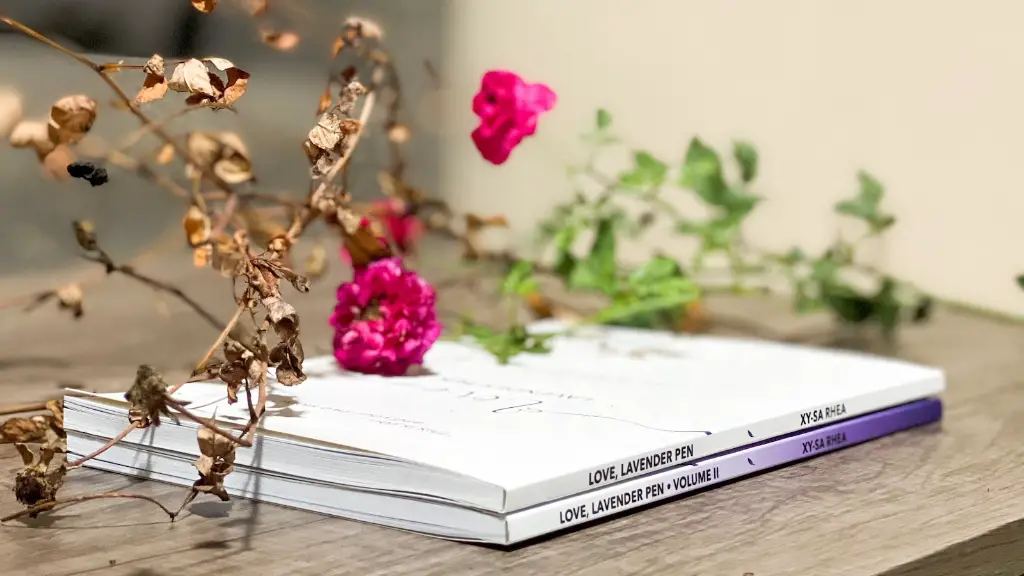Reading a book of poetry can be both a rewarding and challenging experience. To read a book of poetry successfully, one must have a strong understanding of literary elements and have the right mindset. In this article, we explore the best strategies to apply when reading poetry and the relevant information to keep in mind while perusing through its pages.
It is important to have knowledge of different literary tools and techniques, such as literary devices, including metaphor and simile, to appreciate the craftsmanship and skill that goes into creating a poem. While skimming through the pages of a book of poetry, it is important to have a keen eye for imagery and diction. Words are the primary source of communication for poets, so picking out each word and silently exploring their denotations and connotations is essential when understanding the true meaning of a poem. Other elements such as the stanza structure, the recurring themes, the use of punctuation, and so on are all elements to take into account when reading a book of poetry.
When analyzing a poem, it is important to break it down and understand the different elements that it contains. This can be achieved by identifying the overall message and the motifs surrounding the poem. A popular method of going about this is ‘unpacking’ the poem, which is essentially breaking down the poem into blocks and investigating each one individually. In exploring the individual blocks, looking for literary techniques can be beneficial. Additionally, considering the poem as a whole and viewing it from a contextual perspective is also recommended.
Experiencing a poem from an emotional standpoint is also a worthwhile pursuit. Poets often attempt to evoke emotion from their readers through a variety of ways. A poem’s tone and the use of imagery are powerful vehicles for this; for example, juxtaposing harsh images with softer tones has a tendency to entice a more powerful emotional response.
It is important to note that context is paramount when studying a book of poetry. Understanding the background of the poet, their lifestyle and their beliefs, can also greatly enhance the experience of reading a poem. In some cases, it can add greater depth to an otherwise seemingly simple poem. Additionally, it can allow the reader to uncover hidden layers of information in less intuitive poems.
In conclusion, reading a book of poetry is an experience like no other, and with these few tips, the reader can get the most out of it. Utilizing a critical eye and engaging in a deeper level of study can make all the difference when it comes to grasping the true meaning of a poem.
Knowing the Right Audience
One of the main aspects of reading poems is knowing who the audience is for each poem. Keeping the target audience in mind allows for the reader to further appreciate the poem. Every poem has a different target and understanding who it is intended for can be crucial to understanding its purpose. Knowing the poet and their writing style can give clues as to who the intended audience is. In longer poems, the language and imagery can also be used to identify the audience; for example, with intricate details and complex metaphors, the poem may be directed towards a more sophisticated audience.
Additionally, poems can be interpreted in different ways depending on the audience. People have varying backgrounds, experiences and worldviews and this can all contribute to how a poem may be read. Therefore, it is important to be receptive when reading poetry, to be aware of the possible interpretations of the poem and to reflect on how an individual’s experience influences their understanding.
Learning From The Last Line
The last line is often vital in poetry and due to its power, it is recommended by some readers that instead of beginning at the beginning, that they start at the end. Oftentimes, the last line is the only sentence that sticks in the reader’s mind and can be the poem’s true essence. This technique can help to decipher the true message, giving many insights into the poem and what the poet was actually trying to convey. It is important to remember that the last line, along with the rest of the poem, must be critically examined and not taken at face value. When the last line is understood, the rest of the poem may be understood. For example, when the last line of a poem foreshadows lessons or a realization, this can be seen as a metaphor for the entire poem. Ultimately, a lot can be learned from the last line and taking the time to reflect on its importance can be eye-opening.
Internalization of the Poem
Internalization of a poem is a fantastic way to better understand it. It allows the reader to gain understanding from the perspective of the poet, enhancing their overall comprehension. Many readers have their own specific ways of exploring poems this way. Some readers may take the style and language of the poem and make it their own by forming a poem inspired by the original. Some may choose to interpret the message the poem has, gaining a further understanding of the poet’s story. Ultimately,internalizing a poem allows readers to have a greater appreciation of both the poem itself and of the poet.
Abstract Poems
Abstract poems are an interesting take in poetry and can be interpreted in many different ways as they are often based on obscurity. It is important that the reader takes their time when reading these types of poems as they may require more attention and understanding from the reader. Abstract poetry has the ability to open up endless possibilities of interpretations, though it can also be misinterpreted and lead readers to see it from a misguided point of view. When reading an abstract poem, it is important to actively seek out the poet’s message and refrain from imposing one’s own views on it.
How to Apply What You Have Read
Once you have explored the different sections of a book of poetry, it is essential to take some time to reflect and apply the knowledge gained from your reading. Ways in which the reader can apply their knowledge of poetry can vary from person to person. A great way to apply newfound knowledge is to create one’s own poems or prose based on the information discovered. Reading poetry can open up many doors for the reader and understanding the poet’s craft is essential for one to acquire their own skill in creating poetry.
Engaging with the Poetry Community
Interacting with other poetry enthusiasts is a great way to increase your understanding when reading a book of poetry. Connecting with a poetry community allows you to engage with people who have similar interests and can add a social element to your poetry reading. Joining forums and attending poetry readings are great ways to find people who have similar experiences and to discuss different poems, their meanings and interpretations, as well as the poet’s experiences and stories. Engaging with the poetry community is beneficial as the reader can gain different perspectives and can even have their own ideas challenged.
Developing Writing Skills through Poetry
By connecting with the poetry community and having discussions about different poets and their works, the reader can gain a helpful insight into the craftsmanship of poetry and can refine their own writing skills along the way. Writing poetry can be seen as a creative journey and can help build upon the reader’s knowledge of writing and can help them to develop their own skills of expressing themselves. Learning from the writing and techniques found in poems can help the reader when creating their own pieces and can help shape their style of writing.
Recognizing The Power of Poetry
When it comes to reading a book of poetry, it is important to recognize the power of poetry and the emotional and mental effect that it has on the reader. Good poetry can help the reader feel understood and can bring to light some of the most powerful issues and struggles faced in life. By understanding the power of this impactful form of literature, the reader can better comprehend the messages that are being expressed. Much of what is expressed through poetry lies underneath the surface and this is why it is important to have a deeper understanding of the words being used and the emotions being expressed.



